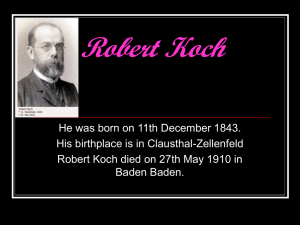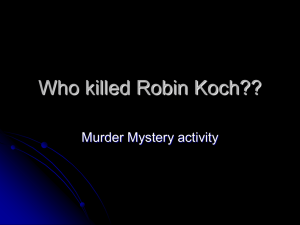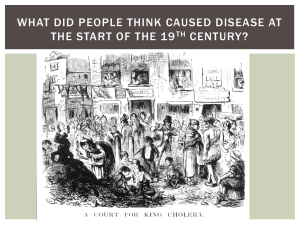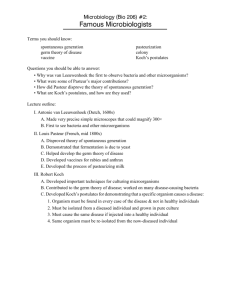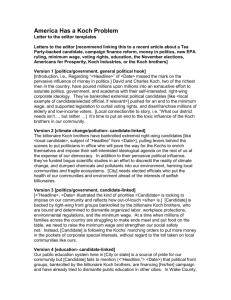Profile of Bob Frank: Koch Music
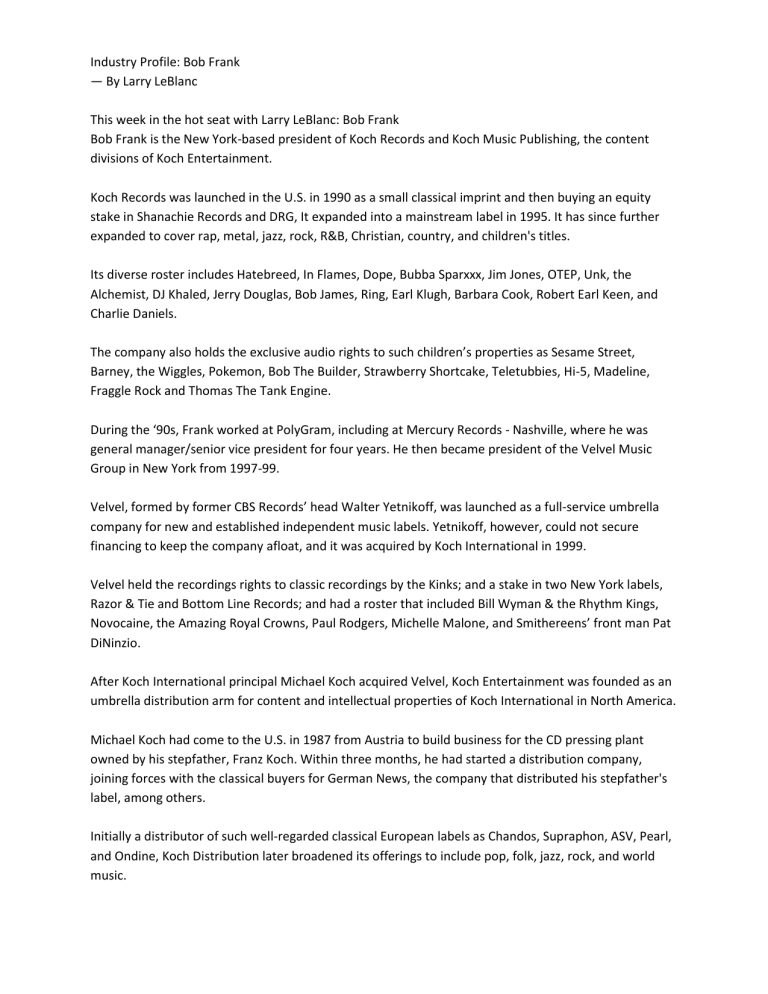
Industry Profile: Bob Frank
— By Larry LeBlanc
This week in the hot seat with Larry LeBlanc: Bob Frank
Bob Frank is the New York-based president of Koch Records and Koch Music Publishing, the content divisions of Koch Entertainment.
Koch Records was launched in the U.S. in 1990 as a small classical imprint and then buying an equity stake in Shanachie Records and DRG, It expanded into a mainstream label in 1995. It has since further expanded to cover rap, metal, jazz, rock, R&B, Christian, country, and children's titles.
Its diverse roster includes Hatebreed, In Flames, Dope, Bubba Sparxxx, Jim Jones, OTEP, Unk, the
Alchemist, DJ Khaled, Jerry Douglas, Bob James, Ring, Earl Klugh, Barbara Cook, Robert Earl Keen, and
Charlie Daniels.
The company also holds the exclusive audio rights to such children’s properties as Sesame Street,
Barney, the Wiggles, Pokemon, Bob The Builder, Strawberry Shortcake, Teletubbies, Hi-5, Madeline,
Fraggle Rock and Thomas The Tank Engine.
During the ‘90s, Frank worked at PolyGram, including at Mercury Records - Nashville, where he was general manager/senior vice president for four years. He then became president of the Velvel Music
Group in New York from 1997-99.
Velvel, formed by former CBS Records’ head Walter Yetnikoff, was launched as a full-service umbrella company for new and established independent music labels. Yetnikoff, however, could not secure financing to keep the company afloat, and it was acquired by Koch International in 1999.
Velvel held the recordings rights to classic recordings by the Kinks; and a stake in two New York labels,
Razor & Tie and Bottom Line Records; and had a roster that included Bill Wyman & the Rhythm Kings,
Novocaine, the Amazing Royal Crowns, Paul Rodgers, Michelle Malone, and Smithereens’ front man Pat
DiNinzio.
After Koch International principal Michael Koch acquired Velvel, Koch Entertainment was founded as an umbrella distribution arm for content and intellectual properties of Koch International in North America.
Michael Koch had come to the U.S. in 1987 from Austria to build business for the CD pressing plant owned by his stepfather, Franz Koch. Within three months, he had started a distribution company, joining forces with the classical buyers for German News, the company that distributed his stepfather's label, among others.
Initially a distributor of such well-regarded classical European labels as Chandos, Supraphon, ASV, Pearl, and Ondine, Koch Distribution later broadened its offerings to include pop, folk, jazz, rock, and world music.
Under Frank, Koch Entertainment quickly enjoyed enormous success with its World Wrestling
Federation and Pokemon titles, and the Mo Thugs Family's "Layzie Bone Presents Mo Thugs III: The
Mothership" album.
In 2005, Koch Entertainment was sold to Toronto-based Entertainment One, for approximately $80 million. Then Entertainment One was sold to the London based firm Marwyn Investment Management for a $188 million dollars. Today, Entertainment One is listed on the London Stock Exchange’s
Alternative Investments Market.
Koch Entertainment Distribution is today's largest independent distributor not affiliated with a major, behind only Warner-owned Alternative Distribution Alliance and Sony-owned RED. The company distributes some 100 active labels, with about 180 imprints. Its catalog encompasses 25,000 titles. As well, Koch Vision has a catalog of 400 titles, including Japanese martial arts titles, military movies, anime and classic TV comedies.
Koch Records is the largest label in the Koch Entertainment Distribution portfolio Two years ago, Frank launched three divisions, bringing in Chuck Mitchell, a former president of Verve, to oversee jazz; Barry
Landis, a former president of Word, to oversee Christian; and Scott Givens, who has been at
Roadrunner, to oversee metal.
In 2007, Frank became the first president of global independent-music sector digital-rights licensing agency Merlin. In his role, Frank collaborates with Merlin CEO Charles Caldas to protect and exploit the copyrighted works of independent labels worldwide.
Frank has a BS Degree in Economics from St. John’s University in New York and an MBA in Management from the New York Institute of Technology.
Your parent company Entertainment One closed on a $150 million credit facility the day after Lehman
Brothers crashed.
That’s pretty amazing isn’t it? If that isn’t a good omen, I don’t know what is. I don’t think deals like that would be there for just a record division in this (economic) climate.
Koch Records is nearly 18 years old?
The record label really got started when Koch Entertainment was formed on June 1, 1999. Until we formed Koch Entertainment’s content division there was no chart presence for the label. They had done a few things to feed the distribution company, like releasing singer/songwriter, classical and wrestling recordings.
Koch Records is now the #1 independent label in the U.S.?
We’ve been the #1 for some time. But what does independent mean anymore?. There are so many
different gradations that define what an independent label is these days. Is an independent label anybody who is not part of Universal, Sony, EMI or Warner? We are part of Entertainment One which is a public company traded on the AIM Market exchange in London.
2008 was a time of change for the music industry.
2008 was a perfect storm with a lot of drama and pain. We had a recession all year while the music business went through a dramatic reinvention of itself. A lot of companies had an off year and it wasn’t one of our best. Hopefully, we will have a much better year in 2009 as we further stabilize our company.
But we expect (a further market decline) and we know we will survive it, and come out of it stronger.
You recently slammed the MySpace Music deal in which major record labels received ad-revenue sharing deals and equity stakes amounting to 40% of the MySpace venture. Independents and unsigned artists face being shut out of the revenue stream generated by ads on their pages.
We’re still in negotiations with MySpace. I do think it will end amicably. But that (deal) really touched a nerve with me. Having spent the first half of my career at a major label, I have seen (the market) both ways.
When I was a major label executive I never gave the independents a second thought. All I cared about was growing our company.
As an independent label executive, and head of the #1 independent, my perspective has changed. We have a large business and yet MySpace hasn’t taken that into account. Part of that comes from MySpace not really understanding the dynamics of the business.
MySpace likely figures that the music business is still the Big Four. But independent labels represent about 30% of the global recording business today. Koch, Beggars Banquet, Domino and Epitaph all have global hit artists.
Yes and the Big Four aren’t that big any more. Also their (market share) numbers include a lot of embedded independents. Many labels that go through ADA or RED aren’t getting participation in
MySpace. Just like they didn’t get participation in the Kazaa settlement either. So there’s a double standard which we are trying to address.
Aren’t you really trying to build a digital foundation that will be strong in five years time?
The (business) model is going to be completely different in five years. It’s going to be a whole new world. A lot of these social networking sites are going to be the primary revenue generators in, perhaps
10 years. There are so many interesting dynamics taking place today.
Meanwhile, the physical retail sector for music keeps shrinking.
We are in the middle of a drastic shift in the retail marketplace. Within five years we’ll be a 75-80% nonphysical business. I don’t think we’re going to lose (physical music retail) but that market will continue to
shift. And I don’t think we are going to bottom out in 2009. But we have to look for new revenue streams and grow some of the existing new ones. The economics have changed. I read somewhere that
“We have gone from analog dollars to digital dimes.” If so, we have to face that reality.
All genres of music are feeling the same pain today. But that pain is driven by a change in the overall marketplace that we are all reacting to. This business isn’t going to go away; it’s just changing. I hate saying “I’m a record guy” anymore. We are not in the CD business. We are in the song business.
What do you make of Warner pulling their videos off of Google-owned YouTube?
The memory of MTV building itself into billion dollar company on the back of our (music) content is something everybody remembers. Nobody wants to see it repeated. Everybody wants to participate (in profits). I understand the perspective of the majors when they take those types of positions. They are the biggest guys in the room. As an independent, we have always taken a different position. We have never supported DRM (digital rights management), for example. And now ITunes has announced no more DRM.
How about Warners’ and consultant Jim Griffin’s suggestion of a surcharge on ISP accounts? Isn’t that like DRM in that it is restrictive?
It is. People have been talking about DSP [digital signal processors] deals for some time. There is a potential there for a new revenue stream. I think that long-term the subscription model is going to be a big part of the future.
ISPs have shown a great reluctance to go that way.
We tend to get stuck on the technology part of [music delivery] rather than focusing on the psychographic shift in the nature of ownership. The nature of ownership has changed from me wanting to hold onto my vinyl or my CDs. I’ve got 60,000 songs on my hard drive, using three IPods. Unless it is something I’m really into, I am fine buying from ITunes. I don’t need to have the physical.
Let’s see how you feel when your computer hard drive crashes with all your music.
It happened to me. It was almost like someone died. I spent years loading music onto my computers and it was like, “Holy crap, what do I do?” I sent the (computer) out. They rebuilt about 80% of the hard drive and I had some Itunes files dumped back into it from another program. I then bought this funky hard drive that is two hard drives in one which backs up itself.
The digital side of your business has grown at Koch Records. In 2007, digital was 33% of your net income.
In 2008, it will end up being about 45% (of our net income). It is something we have really focused on.
Publishing has also been an area of growth as well.
The way we have built it has primarily been with artists that we have signed. We have a few thousand songs now. With the heavy metal division specifically, there was an opportunity to acquire publishing as we did the audio deals. It’s an area that we can really grow without an incredible investment. We are not signing writers. We are not doing that.
The label is diversified, musically.
That’s our competitive advantage. It lets us get through difficult times in a specific genre. If one genre is shrinking, another is growing. We don’t lose a lot to piracy with metal or jazz (titles) and with children’s product (piracy) is virtually zero. Unless there are moms out there downloading the Wiggles.
What led you to broaden the label’s musical scope two years ago?
In the fourth quarter of 2006, our urban division made up a huge percentage of our year-to-date sales for the first time. It had been 65-75% of our business for some time but it became almost 85% of our business. However, the sales (on individual titles) on hard core street level hip hop were starting to go down. We knew we needed to make some changes. The challenge was what genres to bring in.
Why did you decide to develop jazz, heavy metal, and Christian catalogs?
When asked about his secret to hitting, Hall of Fame (baseball) legend 'Wee' Willie Keeler used to say, "I hit 'em where they ain't.”
We decided we wanted to be in genres that the majors aren’t focused in. We’re not going to compete with the Pussycat Dolls or Britney Spears. That’s not our world. We’ll sign acts that either have a fan base or new artists that have a buzz. We are not going to create acts from scratch. If we did that, we’d soon be selling pencils on the corner because the rate of success (with unknown acts) is not great at all.
(Unlike the majors) we don’t have a huge catalog behind us to help cover mistakes.
You certainly been successful with metal bands like Hatebreed, Dope, In Flames, Oh Tep and Dirt Fred.
One of your most recent signings is Satyricon from Norway.
We feel we can grow metal and be one of the top players in the genre in ’09. With hard core metal, you aren’t going to have a platinum record but you can sell 50,000 to 100,000 CDs. Our metal guy Scott
Givens will be at MIDEM for the first time looking to bring things in. His official title is God of Metal.
You do co-ventures with the majors, including making a deal about 18 months ago with Epic to work urban acts together in the U.S.
Epic doesn’t have an urban radio staff, and we don’t have a pop radio staff. So we pick projects together. Sean Kingston was the first and it was huge. Epic worked Ray J at pop radio which was our signing. We are working their artist Brandy at urban radio now.
The deal gives us the ability to be part of the bigger machine to take some of the songs to pop radio. For
Epic, it’s a great deal because they don’t have to hire an urban infrastructure. We have some of the best
urban staff in the business.
Would you like to do more deals like this?
Yes. As the majors go through their transition and bring down their cost structures, there’s an opportunity for companies like ours. We are set up to handle some of these genres at a much lower cost structure, and with a greater expertise,
You signed Sinead O’Connor for North America. Why?
I always wanted to work with her. She’s exactly what I expected: a very strong personality. If she wants to, she still has a real record in her. She still has the pipes. We’ve recommended a couple of producers to her.
You are of Irish descent but you never visited Ireland until 2004. That must have amused Sinead.
Well, we had a couple of discussions about it. She was quite surprised when I told her where my family was from [County Wexford]. It was a big bonding thing for us.
You grew up in Valley Stream on Long island. How did you get introduced to the entertainment business?
I worked in clubs on Long Island and in New York from when I was 16 through college. When I started I did anything the manager asked me to. I ended up being an assistant manager at several clubs.
When I started in the club business, the business was going through a similar time to what it is going through now. It was at the end of disco and the (recording) market crashed and burned. Over a period of
1979 to 1982, it went from a business doing over $4 billion a year to $3.5 billion. So there has always been gloom and doom times.
The crash in the music industry in the U.S. started in 1979.
Yes, the crash started in ’79. I remember the old jukebox guys coming into the clubs to replace 7-inch singles. They’d complain about how the record business was hurting. Primarily, it was due to the death of disco and nothing had come back yet.
Did you try to get into the music business in New York?
When I was 22, I got a junior product manager’s position at Doubleday Book and Music Clubs, and stayed there for a couple of years. Then PolyGram was expanding and I applied for a job there. I worked in business planning at PolyGram for two years in New York.
Then I met Luke Lewis who had started in Nashville in 1992. There was an opportunity down there.
Without even visiting Nashville, I said “I’m out of here.” I was 26 years old. I knew it was a great opportunity because Nashville was exploding, and I wanted to work with Luke. To be able to move to
Nashville in my mid-20s and work for a guy like Luke Lewis, you can’t buy that kind of experience.
Nashville was a great experience. That’s where I really went to school. I just watched and learned from
Luke.
[Lewis, a former Army journalist, broke into the record business when he landed a job as a sales rep for
CBS Records in 1976. He spent more than a decade with the company and then became MCA's vice president of sales and marketing in 1988. Four years later, he was lured to Nashville by Mercury's
Nashville division, where he was named president. He is currently chairman and CEO, Universal Music
Group Nashville.]
You came into the recording industry while it was at a crossroads.
PolyGram was a tremendous learning environment during that time. They sent me to various senior management training programs, and paid for my MBA. [PolyGram president] Alain Levy was a huge believer in executive development and that permeated the (company’s) culture.
[Frank attended the PolyGram Senior Management program at the London Business School in 1994. He was also sent by PolyGram to the Center for Creative Leadership in North Carolina in 1995 and the
PolyGram joint music/film training program in Los Angeles the same year].
There was an influx of people in country music in those days that weren’t from Nashville.
In our office, only one person was from Nashville. Nashville is a very transient town. But that‘s part of its charm. It is also an insular world. It is just country. It is not like dealing with pop music from New York or
Los Angeles and working different radio formats and international acts.
When you were in Nashville, country music sales exploded with the growth of country radio and the emergence of the CMT and TNN networks.
It was a (sales) machine. It was also a much different time at retail too. There were records we would ship 75,000 units of then that we’d be lucky now to ship 20,000 of today. It was a period of massive growth in market share for country.
You worked with some big-selling acts including Shania Twain, Billy Ray Cyrus, and Toby Keith.
It was an incredible roster. We had an incredible executive team with Luke leading the way and we had some of the best A&R guys ever in the history of country music like Harold Shedd, and Keith Stegall.
Luke put together an amazing operation which is why he’s still there.
Did the country explosion of the ‘90s create greater corporate expectations?
It really did change expectations. If you had a few platinum records one year, the next year you had to have two platinum and one gold. That is relatively unrealistic if you don’t know who that artist will be.
We were lucky we had some big successes.
With greater success country labels began to be run like pop labels.
Well, (success) changed the cost structure. We went from making $10,000 videos to making $500,000 videos.
What brought you to VelVel?
I got a phone call from Walter Yetnikoff who I had never met. I thought it was a joke. I picked up the phone and I said, “Okay, who is this?” And it was really him. He told me, “I’m starting this company, and
I’m looking for a young guy to help me run it and be my partner. People keep telling me I should talk to you. I want you to come up to New York and see me.”
I happened to be going up to New York that week, so I decided to take the meeting. We hit it off right away. About three hours later, he asked me to come back the next day and meet with him and a few other people. The next day I walked in and all of his advisors were there. The next week, Walter called and said, “I’d like you to take the job.” I didn’t think it would go that far.
He didn’t talk about acts for the label?
It wasn’t going to be a record label. The initial goal was to buy independent labels. Unfortunately, none of the big financing came through. Walter was so mistreated by the investment community.
Walter never hid the fact that he was a pretty wild character who had battled for years with Sony brass.
He never tried to hide it but I know a different guy. For two years, I was with him seven days a week traveling around the world with him, doing deals. The guy I know is one of the smartest people around.
He can read a contract in an hour and then repeat it back to you. And he’s one of the best people persons around.
You were also trying to raise money during a time when people were raising money for new dotcom companies.
That’s true. In 1997 and 1998, investors were only interested in the digital future. If you were out there with a dot.com trying to raise money, it was easier than being out there with an ex-CBS executive and myself trying to raise funds to buy up independent record companies. But a lot of those dotcoms went belly up.
In 1999, in a move that would have beefed up its presence in the U.S., German music giant Edel negotiated with you to acquire Velvel. All Edel had in the U.S. in those days was a small label with singer
Jennifer Paige.
Exactly, that is why they were interested in our operation. But it just didn’t feel right. It wasn’t a good fit.
The Koch International deal was Koch was looking to get into the record business. When I knew it wasn’t going to work out with Edel, I called Michael Koch [then chairman and CEO, Koch International]. We did
the deal in one day. That’s when we formed Koch Entertainment which initially was the content arm (of
Koch Distribution). The first deal we did as Koch Entertainment was for Pokemon.
VelVel had owned a 50% stake in the Bottom Line label which later became full ownership under Koch
Records. I understand there’s a box set coming this year featuring performances from the club?
[The Bottom Line was an intimate music venue in New York’s Greenwich Village. Owned by Allan Pepper and Stanley Snadowsky, the 400 seat club opened in 1974, and closed in 2004. It featured acts like Bruce
Springsteen, Lou Reed, Harry Chapin Dolly Parton, Ravi Shankar, the Ramones and hundreds of others.]
Allan Pepper and I are currently working on a historical box set of Bottom Line recordings to be released in June or July. We aren’t sure how many tracks. We are thinking 75 to 100 tracks. Obviously, many of the tracks have to be cleared but because of the state of the record business today we have been able to clear an incredible amount of tracks. It is such an incredible library. We’ve even got a spoken word piece from John Lennon.
